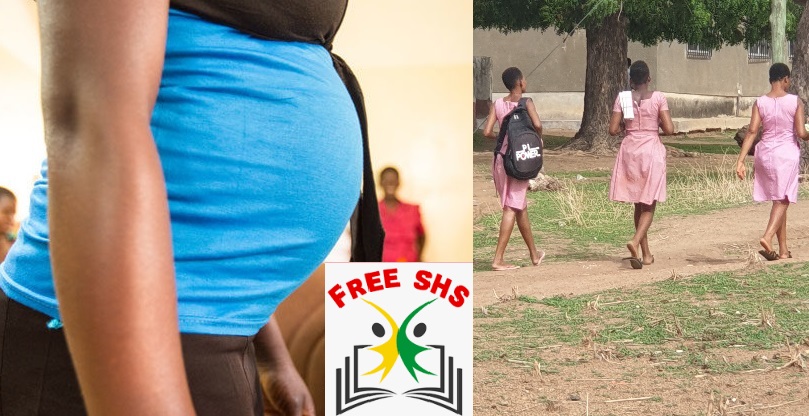After the government announced a shutdown in March 2020 owing to the outbreak of Covid-19, 687 girls in the Upper West Region returned to school pregnant in May 2021, when schools resumed.
50 were in Primary Four, 105 in Primary Five, 261 in Primary Six, 48 in Junior High School, 91 in Junior High School, and 139 in Junior High School.
In a presentation at the “Back-To-School Campaign” Review Workshop in Wa, Madam Janet Kpan, the Upper West Region Girls’ Education Officer, revealed this.
She stated that as of May 2021, 85 of the pregnant girls had returned to school after giving birth.
Three were in Primary Four, five apiece in Primary Five and Primary Six, 13 in JHS1 and 24 in JHS2, and 39 in JHS3, she said.
Madam Kpan stated that enrollment at the Kindergarten (KG) declined from 62,803 children in March 2020 to 58,386 children in May 2021.
Primary school enrollment drops from 120,089 students in March 2020 to 111,692 students in May 2021.
In March 2020, 44,764 students were enrolled in JHS, but by May 2021, that number had dropped to 35,059 students.
Madam Kpan stated that if the Ghana Education Service (GES) had not launched the “Back-To-School Campaign,” the situation of students, including pregnant girls, failing to return to school would have been much worse.
According to her, the campaign used strategies such as community sensitization durbars, radio discussions, teacher training on how to provide adequate health and emotional support for students in school, and the provision of Personal Protective Equipment (PPE) across all schools to allow students to follow the COVID-19 protocols.
Alternative strategies include using successful female role models, having officers visit and interact with students on a regular basis, providing assistance and counseling on future education and other career paths, and providing students with the necessary support as needed.
Madam Kpan identified stigmatization, lack of cooperation from parents, illegal small-scale mining, popularly known as galamsey, pregnancy, some students getting married, and others abandoning school to work as commercial motor taxi cab drivers as key issues affecting the return of children to school across the region.
The other factors include stigmatization by coworkers, a lack of family support, and, in the case of pregnant women, who will care for the kid when the mother returns to school.


